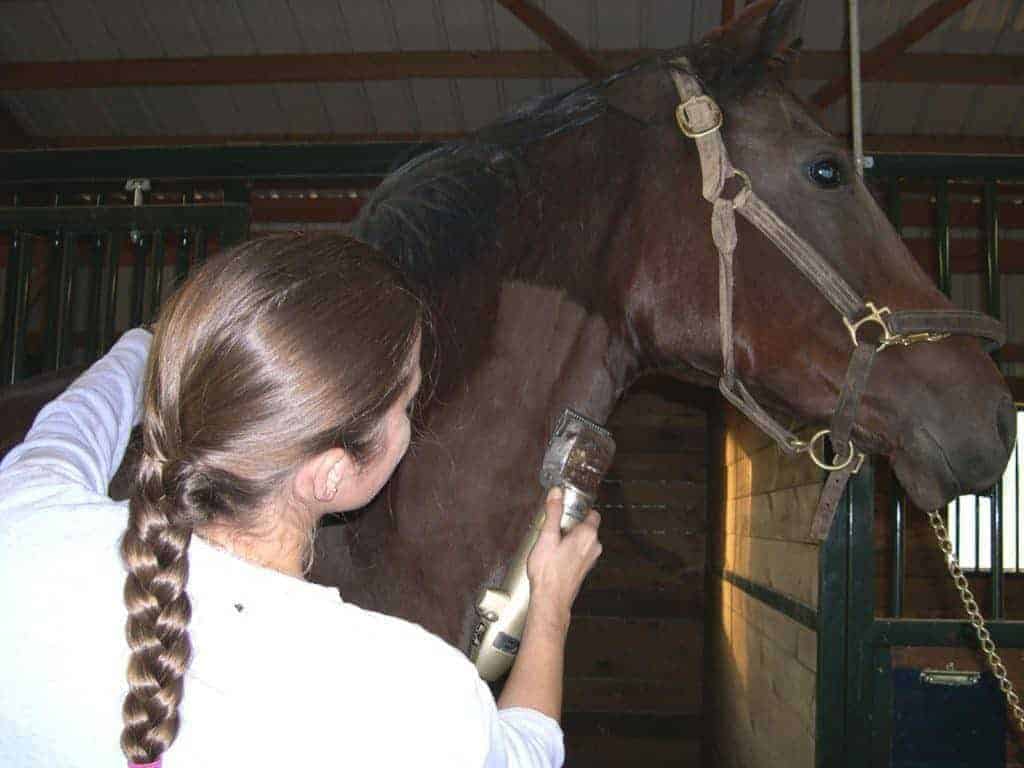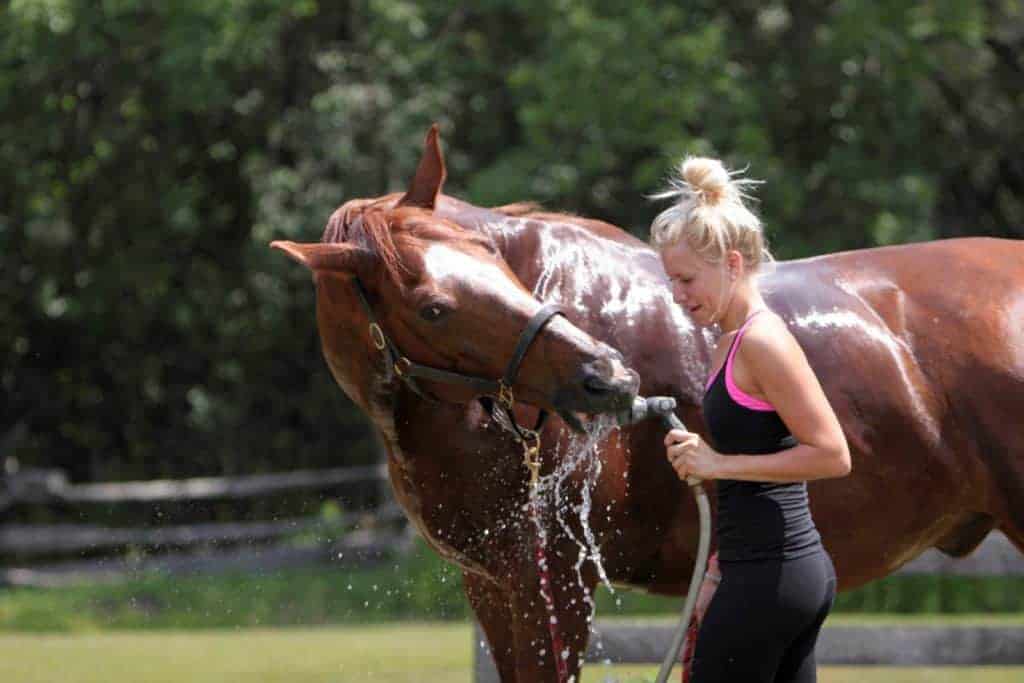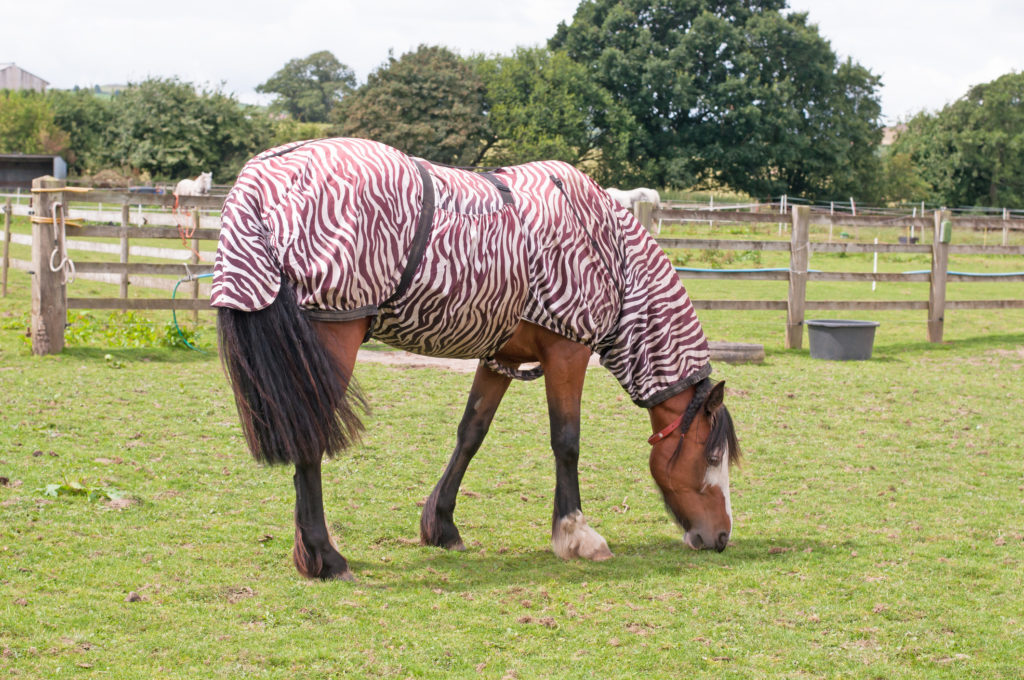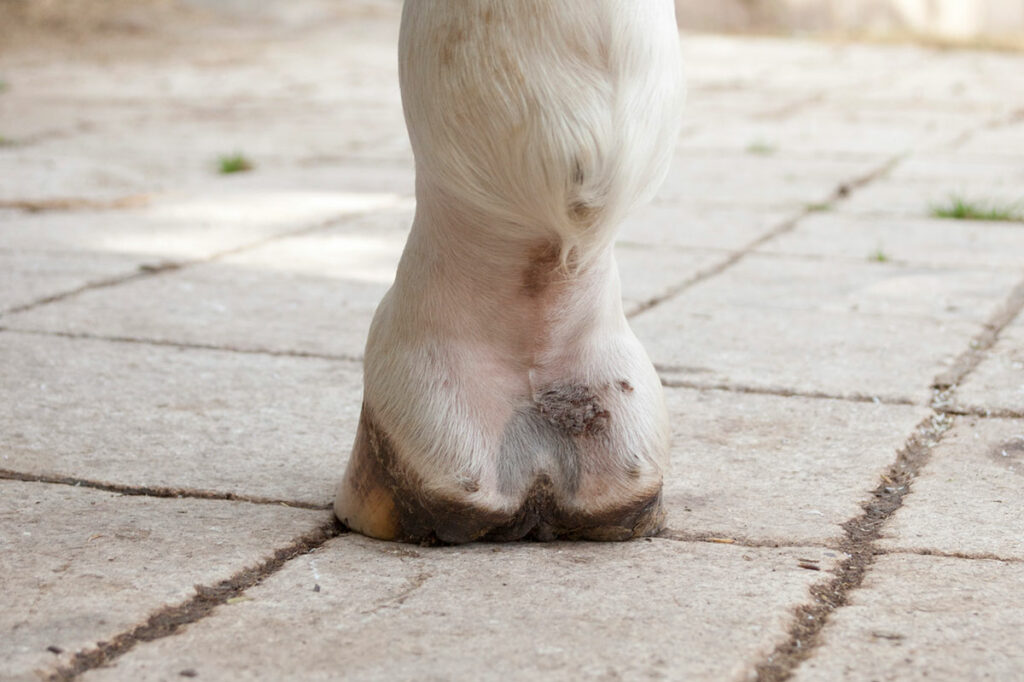
S. Aureus a Contributing Factor in Equine Pastern Dermatitis
Equine pastern dermatitis is a potentially painful condition that can spread between horses if not treated properly.

Equine pastern dermatitis is a potentially painful condition that can spread between horses if not treated properly.

Boots and wraps might help prevent scratches, but only when used properly and with other management techniques.

Look for educational information about scratches in horses on TheHorse.com.

Learn how to control this rapidly progressive infection within the horse’s subcutaneous skin layer.

A veterinarian offers tips to keep horses with sensitive skin comfortable when clipped.

The guidelines can help veterinarians make a diagnosis, recognize clinical signs and risk factors, and provide treatment.

Stephen White, DVM, Dipl. ACVD, shares some lesser-known facts about equine dermatology.

Differentiating between ringworm and other skin conditions is important when determining treatment.

As tough as steamy summers can be on humans, they can be even harder on horses. Two veterinarians share tips on how to help your horse beat the heat this summer.

Do you have an itchy horse? Learn more about insect bite hypersensitivity with our visual guide.

Learn how to treat this skin condition in show horses without inadvertently breaking drug rules.

Help keep your horse healthy and get the most out of the coming months by increasing your understanding of—and watching for—five common health conditions seen during the summer.

Do you have an itchy horse? Learn about 6 possible causes of pruritus in this visual guide.

Skin conditions in horses are often difficult to diagnose and frustrating to treat, with causes ranging from fungi to allergens to who-knows-what. Check out our pictures of common equine skin conditions—patchy to scabby and everything between.

Researchers found areas with equine pastern dermatitis had less bacterial diversity and more Staphylococcaceae than healthy skin.

A researcher describes ectoparasites, infections, and hypersensitivity disorders that can cause pruritus in horses.
Stay on top of the most recent Horse Health news with
"*" indicates required fields